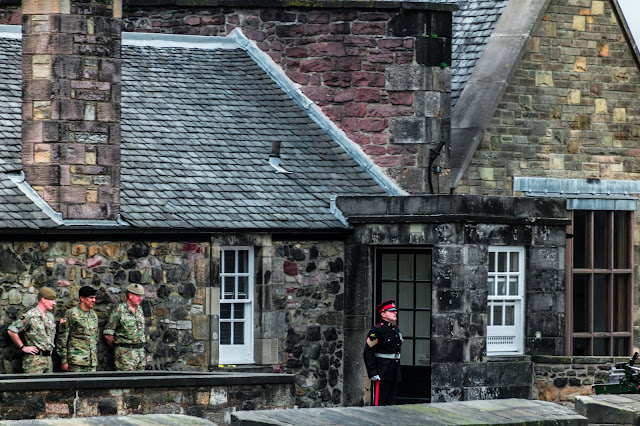Edinburgh Castle is a world famous icon of Scotland and part of the Old and New Towns of Edinburgh’s World Heritage Site.This most famous of Scottish castles has a complex building history. The
oldest part, St Margaret's Chapel, dates from the 12th century; the
Great Hall was erected by James IV around 1510; the Half Moon Battery by
the Regent Morton in the late 16th century; and the Scottish National
War Memorial after the First World War. The castle houses the Honours (Crown Jewels) of Scotland, the Stone of
Destiny, the famous 15th century gun Mons Meg, the One O' Clock Gun and
the National War Museum of Scotland.
One o'clock Gun
The firing of the One o’clock Gun dates back
to 1861 when it allowed ships in the Firth of Forth to set the maritime
clocks they needed to navigate the world’s oceans.
The idea was brought to Edinburgh from Paris by businessman John Hewitt.
The Great Hall
A wonder of medieval Scotland, the Great Hall was completed in 1511 for James IV and stands at the heart of the castle.
Its magnificent wooden roof is one of the most remarkable in Britain.
Giant beams rest on stones engraved with heads and important symbols
like the thistle – a badge of Scotland.
The Royal Palace
For kings and queens the palace was a richly decorated and furnished place of comfort.
The rooms witnessed key events in their lives and Scotland’s history.
Queen Mary of Guise, last defender of the Auld Alliance with France
and champion of the Catholic faith against the Protestant Reformation,
died there in 1560.
It was here too that her daughter, Mary Queen of Scots, gave birth to
James VI in in 1566. The birth was difficult and one of Mary’s
companions supposedly tried using magic to transfer the birth pangs onto
a servant.


























No comments:
Post a Comment